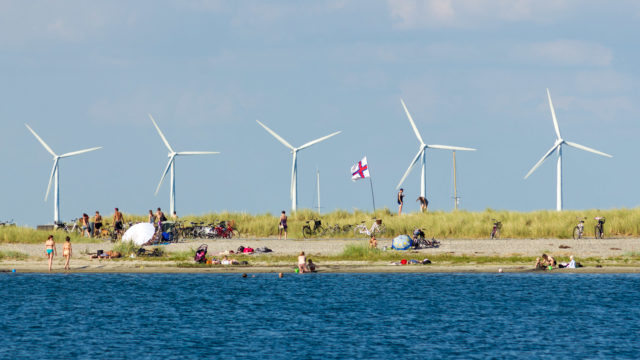Eco-Social Contracts for the Polycrisis
Participatory mechanisms, Green Deals and a new architecture for just economic transformation - our major new research report

Our major new research publication on eco-social contracts examines how "eco-social contracts" - a catch-all term for democratic renewal through new mechanisms of social governance - can step up to the policy challenges of the 21st century. The following is taken from the introduction - download the full report to read more.
By the middle of 2020 it was already apparent that the COVID-19 pandemic was a seismic shock which would reshape global society. At the height of the pandemic, in a virtual address delivered from a New York under lockdown, the UN Secretary General Antonio Guterres called for a ‘New Social Contract’ that would respect the rights, identities and freedoms of all. This new social contract, he argued, must “integrate employment, sustainable development and social protection, based on equal rights and opportunities for all.” His call sets the context for this paper.
In the three years since that speech, the interaction of complex geopolitical threats has led to the emergence of a “polycrisis,” a chaotic and unstable set of emergencies that feed off and amplify each other, defying reduction to a singular cause. Great power conflict, declining multilateralism, rising energy and food prices, forced displacement, and sovereign debt are accelerating – and being accelerated by – the current and longer-term risk trends of climate, biodiversity loss and rising inequality.
Policies and technologies to address these complex intertwining challenges exist. But despite their well-documented benefits, they also will be disruptive, involve difficult trade-offs between up-front costs and long-term pay-offs, and are sure to be contested by powerful beneficiaries of the status quo. Securing sustained public support for such policies is the political challenge of our lifetimes.
This paper reviews the ideas and processes that could answer such a challenge.
“ Getting eco-social policies out of the ivory tower and onto the statute book will not be easy. Navigating this space will require flexibility, sensitivity, and insight: all attributes more easily achieved together than alone.”
We understand the social contract as a framework for action. Social contracts emerge from claims for recognition, rights, freedoms, and security, and govern – often implicitly – the relations between the many and varied groups that make up society.
In previous eras, social contracts allowed for enfranchised populations to claim security and agency from the powerful, but they also excluded many others from full citizenship – including women, colonised peoples, indigenous peoples, and people of colour. Any new social contract must transcend this crude exclusionary approach, and instead provide for equality of opportunity and access to power for all.
But to tackle our ecological and economic crises, it must also provide durable answers to climate change, biodiversity loss, and growing inequality. Building on indigenous worldviews that understand the intrinsic, non-negotiable value of the natural world can be a powerful support to this. To capture the radical nature of the change needed, we describe this approach as a new eco-social contract, fit for the challenges of the 21st Century.

In this paper, we propose that to be successful, an eco-social contract approach will need to operate at multiple scales, be inclusive of all communities, support rapid and sustained change, promote intergenerational justice, be open to the agency of nature, and seek to guarantee security and wellbeing for all in times of change.
We then examine several examples of policy approaches that aspire to some or all of these elements. These include:
- green deal offers to citizens, such as the US Inflation Reduction Act and the EU Green Deal;
- social guarantees to underpin welfare services and state support for citizens;
- new economic approaches to reduce over-consumption in rich countries while protecting security and wellbeing (including ‘degrowth’, sufficiency economics and circular economy);
- and proposals for structural green transformation, enabling majority world countries to bypass polluting growth models and move directly to green economy models fit for the future.
These approaches can contribute to building inclusive and just eco-social contracts in different contexts, mitigating trade-offs by maximising benefits such as poverty alleviation, job creation, reduced pollution and improved health. To enrich these approaches, the paper outlines a direction for building on the social guarantees approach by adding ecological guarantees that frame citizen rights within a healthy local environment, a stable climate and a flourishing natural world.
These approaches, while relatively novel, are all reasonably clear in terms of their theoretical foundations and practical implications. What is less clear, however, is how democratic polities will move to enact – and finance – such transformative agendas and sustain them in the face of disagreement and debate, both good faith and otherwise. The recent political history of states as culturally and politically diverse as Brazil, Chile, India, South Africa, the USA, and the United Kingdom show that the green transition is rapidly becoming both politically fraught and socially divisive.
Transformative policy requires deep and enduring popular support. To deliver this, our existing political practices and institutions are insufficient. Indeed, they are already beginning to break down in the face of current challenges. Strengthening our existing governance structures will require a range of new democratic, deliberative, and mandate-building mechanisms.

This paper examines a range of possible options, including citizen’s assemblies, just transition approaches to economic and social change, participatory budgeting, and citizen dialogues. The appropriate deliberative approach will depend on context, and will need to assess questions of scale, administrative resources, popular mandate, and scope. It will also need to judge how best to engage different groups within society.
Getting eco-social policies out of the ivory tower and onto the statute book will not be easy. In any specific case, it will be necessary to understand how far the available civic and political space will allow for open deliberation of radical pathways of change, which institutions are best placed to animate a movement for a new social contract, and which mechanisms are likely to be most effective in building momentum and shifting investment.
Moving to action
Navigating this space will require flexibility, sensitivity, and insight: all attributes more easily achieved together than alone. To this end, the Green Economy Coalition will work closely with our members, partners and networks to develop and support new, sustainable, and just eco-social contracts.
There is a growing wave of deliberative democratic action on a global scale – providing ways of engaging citizens in determining how their economies and societies should be run – and the promise of rebuilding trust and legitimacy for policy and political action for a just and sustainable world economy and financial system. Our task is to amplify and energise that.
This is an urgent and compelling agenda. The scale of global challenges in this era of growing eco-social crisis also provides opportunities – for governments, civil society and business – to drive transformative and inclusive economic and social change. We call on all actors to engage to make this a reality. It will be the GEC’s first and foremost priority for the coming decade; if you would like to engage with our work, please do join us.
- Dr. Andrew Norton


